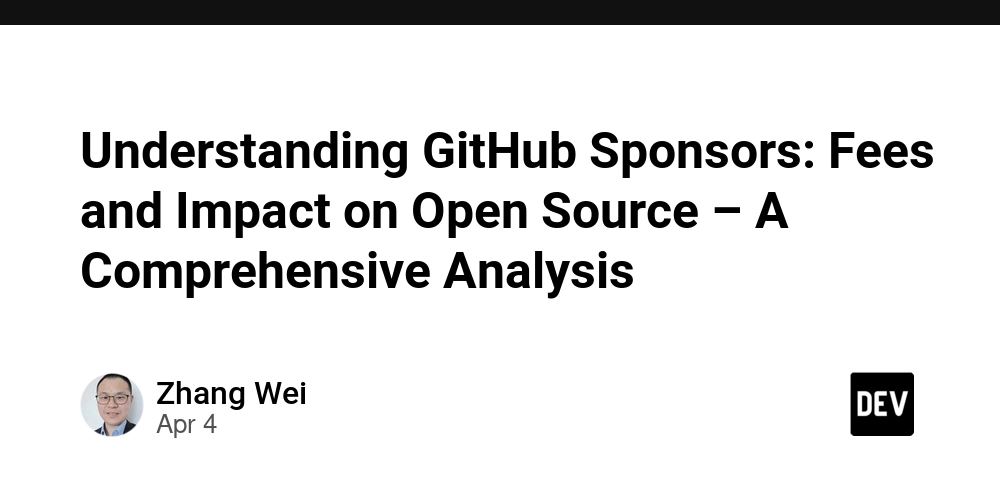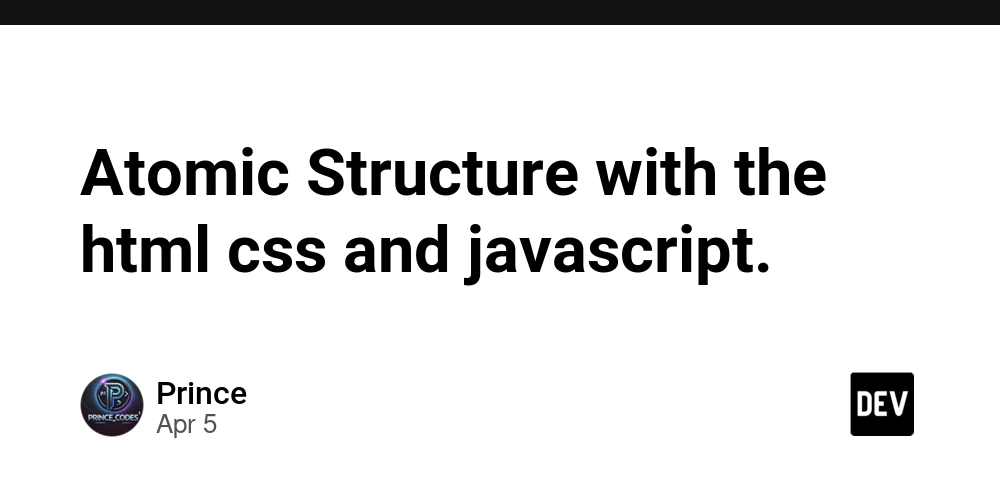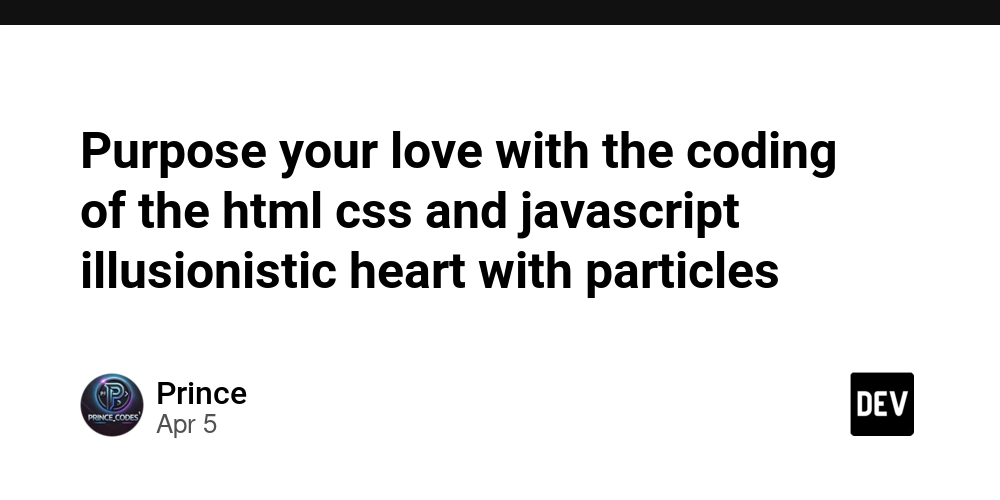Understanding GitHub Sponsors: Fees and Impact on Open Source – A Comprehensive Analysis
Abstract: This post provides an in‐depth analysis of GitHub Sponsors, exploring its fee structure, economic impact, and role in supporting open source. We cover background and context, core features, practical applications, challenges and limitations, and future trends. Along the way, you’ll find relevant links—including direct resources such as GitHub Sponsors and GitHub’s zero fee policy—and additional perspectives from authoritative sources. Whether you are a developer, sponsor, or open source enthusiast, this analysis will help you navigate the technical and financial landscape of open source funding. Introduction Open source development remains the backbone of modern software innovation. With millions of projects, sharing code freely, sustainability has emerged as a crucial concern for maintainers and developers alike. In recent years, platforms like GitHub Sponsors have stepped in to fill the funding gap by offering a direct connection between the community and the creators. This post examines GitHub Sponsors—how its fee structure works, its benefits, and its potential drawbacks. By understanding these aspects, developers can maximize their funding opportunities, and sponsors can make more targeted contributions. GitHub Sponsors proudly adopts a zero platform fee policy so that 100% of funds go directly to developers, with only payment processing fees (as detailed by Stripe’s pricing) applied. This initiative is part of a broader ecosystem geared toward open source sustainability, which includes innovative funding models and comparisons to alternative platforms such as Patreon. Background and Context The Evolution of Open Source Funding Historically, many open source projects evolved on volunteer contributions, enthusiasm, and decentralized collaboration. However, as projects expanded and codebases grew more complex, the need for sustainable revenue streams became apparent. In response, the open source ecosystem began exploring different funding mechanisms: Crowdfunding and Grants: Early funding efforts often relied on community donations and occasional grants. Corporate Sponsorship: Larger firms gradually recognized the economic value of robust open source ecosystems and began sponsoring key projects. Innovative Models: Today, we see models like GitHub Sponsors, Gitcoin, and others adopting blockchain and other decentralized methods to incentivize contributions. GitHub Sponsors: What It Is and How It Works Introduced to address the funding challenge, GitHub Sponsors facilitates recurring financial support. Its mechanism is simple: sponsors pledge money to developers, and developers gain monthly financial support to maintain and grow their projects. With no platform fees, GitHub Sponsors uses payment processors like Stripe, ensuring transparency in fee deductions. For more details on the program benefits, check out GitHub Sponsors for Open Source. Ecosystem Integration GitHub Sponsors contributes to an ecosystem where developers can benefit from various funding resources. Complementary to GitHub Sponsors are several platforms and resources: Benefits of GitHub Sponsors for Developers Innovative Funding for Open Source Projects Open Source Sponsorship Initiatives By interlinking with these resources, GitHub Sponsors forms part of a growing movement that champions sustainable open source funding while ensuring that developers receive a fair share of support. Core Concepts and Features GitHub Sponsors is a multifaceted tool that combines financial incentives with community engagement. Below, we explore its core concepts and how these features intersect with the broader open source ecosystem. Zero Platform Fees and Payment Processing One of the major draws of GitHub Sponsors is its zero platform fee policy. As explained by GitHub’s blog, sponsorship funds are transmitted directly to developers with only minimal deductions for payment processing. By relying on Stripe (Stripe’s pricing), developers know exactly what fees they face. Transparent Fund Distribution Transparency is key to GitHub Sponsors’ success. Funds pass quickly and transparently from sponsor to developer. This allows contributors to plan budgets and ensures that maintenance efforts are well-supported. The distribution process also includes stages such as payout processes and potential tax implications, which are further detailed in related resources such as GitHub Sponsors Payout Process and GitHub Sponsors Tax Implications. Privacy and Security With increased sponsorship comes the need for safeguarding financial data. GitHub Sponsors dedicates significant attention to security protocols and privacy concerns. For more on safeguarding your financial interactions on the platform, check out GitHub Sponsors and Privacy. Complementary Funding Models GitHub Sponsors is not the only avenue for open source f

Abstract:
This post provides an in‐depth analysis of GitHub Sponsors, exploring its fee structure, economic impact, and role in supporting open source. We cover background and context, core features, practical applications, challenges and limitations, and future trends. Along the way, you’ll find relevant links—including direct resources such as GitHub Sponsors and GitHub’s zero fee policy—and additional perspectives from authoritative sources. Whether you are a developer, sponsor, or open source enthusiast, this analysis will help you navigate the technical and financial landscape of open source funding.
Introduction
Open source development remains the backbone of modern software innovation. With millions of projects, sharing code freely, sustainability has emerged as a crucial concern for maintainers and developers alike. In recent years, platforms like GitHub Sponsors have stepped in to fill the funding gap by offering a direct connection between the community and the creators. This post examines GitHub Sponsors—how its fee structure works, its benefits, and its potential drawbacks. By understanding these aspects, developers can maximize their funding opportunities, and sponsors can make more targeted contributions.
GitHub Sponsors proudly adopts a zero platform fee policy so that 100% of funds go directly to developers, with only payment processing fees (as detailed by Stripe’s pricing) applied. This initiative is part of a broader ecosystem geared toward open source sustainability, which includes innovative funding models and comparisons to alternative platforms such as Patreon.
Background and Context
The Evolution of Open Source Funding
Historically, many open source projects evolved on volunteer contributions, enthusiasm, and decentralized collaboration. However, as projects expanded and codebases grew more complex, the need for sustainable revenue streams became apparent. In response, the open source ecosystem began exploring different funding mechanisms:
- Crowdfunding and Grants: Early funding efforts often relied on community donations and occasional grants.
- Corporate Sponsorship: Larger firms gradually recognized the economic value of robust open source ecosystems and began sponsoring key projects.
- Innovative Models: Today, we see models like GitHub Sponsors, Gitcoin, and others adopting blockchain and other decentralized methods to incentivize contributions.
GitHub Sponsors: What It Is and How It Works
Introduced to address the funding challenge, GitHub Sponsors facilitates recurring financial support. Its mechanism is simple: sponsors pledge money to developers, and developers gain monthly financial support to maintain and grow their projects. With no platform fees, GitHub Sponsors uses payment processors like Stripe, ensuring transparency in fee deductions. For more details on the program benefits, check out GitHub Sponsors for Open Source.
Ecosystem Integration
GitHub Sponsors contributes to an ecosystem where developers can benefit from various funding resources. Complementary to GitHub Sponsors are several platforms and resources:
- Benefits of GitHub Sponsors for Developers
- Innovative Funding for Open Source Projects
- Open Source Sponsorship Initiatives
By interlinking with these resources, GitHub Sponsors forms part of a growing movement that champions sustainable open source funding while ensuring that developers receive a fair share of support.
Core Concepts and Features
GitHub Sponsors is a multifaceted tool that combines financial incentives with community engagement. Below, we explore its core concepts and how these features intersect with the broader open source ecosystem.
Zero Platform Fees and Payment Processing
One of the major draws of GitHub Sponsors is its zero platform fee policy. As explained by GitHub’s blog, sponsorship funds are transmitted directly to developers with only minimal deductions for payment processing. By relying on Stripe (Stripe’s pricing), developers know exactly what fees they face.
Transparent Fund Distribution
Transparency is key to GitHub Sponsors’ success. Funds pass quickly and transparently from sponsor to developer. This allows contributors to plan budgets and ensures that maintenance efforts are well-supported. The distribution process also includes stages such as payout processes and potential tax implications, which are further detailed in related resources such as GitHub Sponsors Payout Process and GitHub Sponsors Tax Implications.
Privacy and Security
With increased sponsorship comes the need for safeguarding financial data. GitHub Sponsors dedicates significant attention to security protocols and privacy concerns. For more on safeguarding your financial interactions on the platform, check out GitHub Sponsors and Privacy.
Complementary Funding Models
GitHub Sponsors is not the only avenue for open source funding. Comparisons with other services like Patreon illustrate its distinct advantages. While Patreon sometimes deducts fees that reduce net earnings, GitHub Sponsors ensures developers receive all sponsorship money minus processing fees. This direct model is particularly attractive for those sensitive about fee structures.
Additional Core Features
Some additional features include:
- Matching Funds: Certain programs may include matching funds offered by sponsors or community initiatives.
- Support for Both Individual and Organizational Contributions: GitHub Sponsors accepts funding from both individuals and organizations, further diversifying support channels.
A quick comparison table to summarize these features is shown below:
| Feature | GitHub Sponsors | Alternative Platforms (e.g., Patreon) |
|---|---|---|
| Platform Fee | 0% (except payment fees) | Varies; often a percentage fee |
| Fund Transparency | High | Moderate |
| Developer Focus | Open source sustainability | Diverse creative fields |
| Matching Programs | Available in some cases | Limited availability |
| Tax & Payout Details | Clearly defined | Less transparent |
Applications and Use Cases
GitHub Sponsors has proven instrumental in supporting a wide range of open source applications. Consider these practical examples:
Example 1: Sustaining Critical Infrastructure Projects
Many foundational projects in the open source world (such as those in web development or data science) require continuous maintenance. A developer committed to a critical library can use GitHub Sponsors to secure regular funding. Not only does this enable rapid bug fixes and feature development, it also reduces reliance on inconsistent donation models over time.
Use Case in Action:
- A lead developer of an open source authentication library receives monthly contributions via GitHub Sponsors. This funding is then reinvested to improve security protocols, contributing to the broader ecosystem’s stability.
Example 2: Empowering Indie Developers and Startups
GitHub Sponsors is equally powerful for indie hackers and startups aiming to build sustainable tech ecosystems. With recurring sponsorship, developers can iterate faster, experiment with new tools, and build products that can eventually attract larger user bases or business partnerships.
Use Case in Action:
- An independent blockchain developer uses GitHub Sponsors alongside complementary platforms such as GitHub Sponsors for Open Source and GitHub Sponsors Matching Fund to further develop toolkits for decentralized applications, bolstering the decentralized finance (DeFi) movement.
Example 3: Supporting Open Source Communities and Volunteer Contributions
GitHub Sponsors doesn’t only help maintain code—it also recognizes the effort of unpaid volunteer work, which is vital to open source growth. This model encourages contributions that might otherwise fade due to burnout or lack of financial rewards.
A bullet list of benefits for communities include:
- Stable Revenue Stream: Provides predictable monthly income.
- Enhanced Developer Morale: Recognizes and rewards hard work.
- Encourages Innovation: Incentivizes contributors to implement cutting-edge features.
- Community Building: Strengthens bonds between sponsors and developers.
- Transparency: Clear fee structures build trust.
For more on the importance of funding for community projects, see Open Source Sponsorship and relevant Dev.to articles.
Challenges and Limitations
Despite its benefits, GitHub Sponsors is not without challenges. It’s important to recognize the limitations and external factors affecting open source funding models.
Technical and Financial Hurdles
- Payment Processing Fees: Although platform fees are zero, processing fees from providers like Stripe still reduce the net income. For larger sums, even small percentages matter.
- Tax Implications: Developers must manage tax responsibilities, which can vary by region.
- Adoption Barriers: New or less-known developers might struggle to gain visibility among sponsors, leading to low initial funding.
Market Saturation and Competition
Many funding platforms are vying for sponsorship dollars. Although GitHub Sponsors offers attractive terms, developers may also leverage alternatives such as Patreon or Gitcoin for additional income streams. This reliance on multiple sources occasionally complicates financial planning.
Privacy and Security Concerns
With any financial transaction platform, security remains paramount. Ensuring the privacy of sponsor and developer data requires constant updates and vigilance. Discussions on these topics can be found in sections dedicated to security on GitHub and community discussions such as those outlined in GitHub Sponsors and Privacy.
Community Perception and Volunteerism
While GitHub Sponsors reinforces developer contributions, the open source community sometimes faces criticism for prioritizing monetization over the volunteer spirit. Balancing ethical funding with profit motives is an ongoing challenge. Additional commentary on ethical funding can be found in articles like The Crucial Role of Funding in Open Source Development.
Future Outlook and Innovations
Looking ahead, several trends and innovations are poised to transform open source funding:
Expansion of Funding Models
The success of GitHub Sponsors is inspiring other funding initiatives—from direct sponsorship platforms to blockchain-based funding models, often with decentralized finance (DeFi) components. Future models may integrate cryptocurrency payments and smart contract automation to ensure even greater transparency.
Enhanced Developer Tools and Analytics
Developers may soon gain access to sophisticated analytics tools that track sponsorship contributions and project growth. This data can help optimize funding tiers and sponsorship strategies. The potential use of blockchain for secure record-keeping is an exciting prospect supported by ongoing developments in open source financial tools.
Increasing Corporate and Institutional Adoption
As the value of open source becomes undeniably clear, large corporations and institutions are likely to contribute more actively. With robust models already in place, platforms like GitHub Sponsors will be enhanced through partnerships with corporate sponsors who value transparent and efficient funding channels.
Community-Driven Innovations
The open source movement thrives on collaboration. Innovations such as matching funds, community crowdfunding, and new licensing models are already shaping the future. For instance, initiatives that combine open source licensing and blockchain technology are gaining momentum. To explore more about such innovations, visit Innovative Funding for Open Source Projects.
Expanding Global Reach
The future of GitHub Sponsors and similar platforms is not limited to developers in North America or Europe. With open source truly becoming a global phenomenon, emerging markets are harnessing these tools to build local tech ecosystems. This trend will require enhanced support for developers from diverse geographies, adapting fee structures and payout systems to accommodate global variations.
Additional Resources and External Links
For those who wish to explore further, here are some handpicked resources:
From License-Token Wiki:
- GitHub Sponsors for Open Source
- GitHub Sponsors Matching Fund
- GitHub Sponsors Payout Process
- GitHub Sponsors Tax Implications
- GitHub Sponsors and Privacy
From the Official Sites:
From Dev.to Community Articles:
- Indie Hacking with Open Source Tools – Innovating on a Budget
- Gitcoin: Pioneering Open Source Innovation
- Navigating the Complex World of Open Source Project Sponsorship
- The Crucial Role of Funding in Open Source Development
These external resources empower both developers and sponsors to delve deeper into the dynamics of open source funding.
Summary
In summary, GitHub Sponsors represents a transformative development in open source funding. With its zero platform fee policy, transparent fund distribution, and focus on sustainability, it has become an essential tool for developers and indie hackers. While challenges such as processing fees, tax complexities, and competition exist, the future looks promising with trends pointing toward expanded funding models, enhanced analytics, and global growth.
By leveraging platforms like GitHub Sponsors alongside alternative funding models, the open source community can secure the future of innovation and collaboration. Both developers and sponsors benefit from a system that respects transparency, reward, and the sheer passion that fuels open source.
For a deeper dive into the fee structure and further insights, consider reading the original article on Understanding GitHub Sponsors: Fees and Impact on Open Source.
Final Thoughts
The open source world is evolving at a rapid pace. Financial sustainability is now as critical as code quality, and platforms such as GitHub Sponsors are leading the charge. As the movement expands globally and new technological innovations emerge, developers will continue to enjoy increased support. By embracing these funding channels, the community not only drives technological progress but also fosters a more inclusive, collaborative, and resilient digital future.
Embrace the future of open source funding where every contribution is valued, and every developer has the potential to shape tomorrow’s technology.
Happy coding and sponsoring!



![[FREE EBOOKS] The Kubernetes Bible, The Ultimate Linux Shell Scripting Guide & Four More Best Selling Titles](https://www.javacodegeeks.com/wp-content/uploads/2012/12/jcg-logo.jpg)



































































